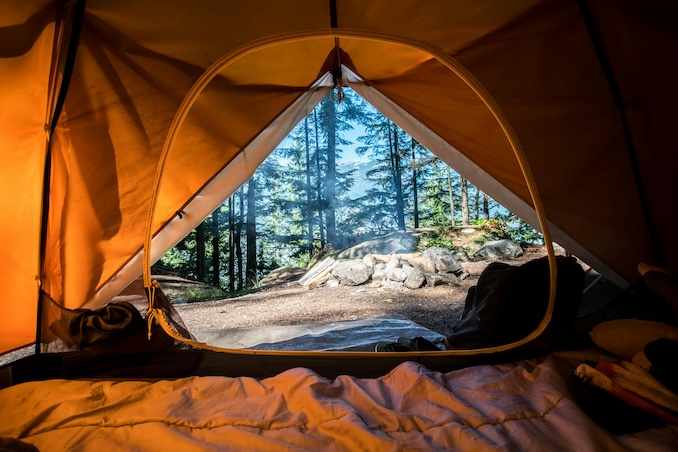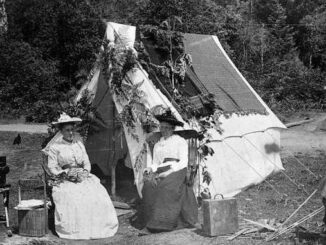Camping is one of the best ways to connect with nature, unwind from the hustle and bustle of everyday life, and enjoy quality time with family and friends. For first-time campers, however, the thought of spending a few nights in the great outdoors can be both exciting and daunting. What gear do you need? How do you stay safe and comfortable in an unfamiliar environment? With the right preparation, your first camping experience can be a memorable and enjoyable one.

Choosing the Right Gear for Your First Camping Trip
Before heading out into the wilderness, it’s crucial to pack wisely. The gear you bring can make or break your camping experience, especially if you’re unfamiliar with what is necessary for a comfortable stay outdoors. The essentials will largely depend on the season, weather conditions, and type of camping you’re doing—whether it’s tent camping, car camping, or backpacking. However, some items are must-haves for any camping trip.
A well-prepared first-time camping checklist ensures you’re not caught off guard by forgetting crucial items like extra batteries for your flashlight or waterproof matches.
For beginner campers, it’s also a good idea to invest in a reliable tent. When selecting a tent, think about the number of people you’ll be camping with and the space needed for your gear. A 2-person tent, for example, will likely only fit two people and no extra space for backpacks. If comfort is a priority, look for larger tents with features such as multiple rooms, added ventilation, and rainfly covers. Some campers prefer the ease of setting up an inflatable tent, which eliminates the hassle of dealing with poles and is often more lightweight.
Picking the Perfect Campsite
The location of your campsite can greatly influence your overall camping experience. For beginners, it’s advisable to choose a campsite that offers amenities such as bathrooms, showers, and designated fire pits. These conveniences can help ease the transition from indoor living to outdoor adventures. Many first-timers opt for well-established campgrounds with marked trails and staff available on-site, especially if the campsite is in a national or state park.
When choosing a campsite, consider the following factors:
- Proximity to Water: Having access to a nearby water source like a lake or river makes it easier to fetch water for cleaning or cooking. However, setting up your tent too close to water might invite unwanted insects and humidity.
- Sun and Shade Balance: Pick a spot that offers a balance between shade and sunlight. Setting up under trees can provide cool shade during the day, but also keep in mind the safety of falling branches or storm risks.
- Ground Conditions: Look for a flat, dry area to pitch your tent. Avoid areas with uneven ground, rocks, or roots that could disrupt your sleep. Also, avoid depressions where water could pool if it rains.
Staying Safe and Comfortable in the Outdoors
Camping offers an unparalleled opportunity to enjoy nature, but it also requires you to adapt to a more rugged environment. Ensuring safety and comfort starts with being prepared for various outdoor conditions.
One essential tip is to layer your clothing. Weather can be unpredictable, and temperatures can drop significantly at night, even during summer months. A base layer, an insulating layer, and a waterproof outer layer will provide flexibility and comfort. If you’re camping in colder seasons, make sure your sleeping bag is rated for the appropriate temperature range.
When it comes to food, planning meals is key to a successful camping trip. Choose simple, nutritious meals that are easy to cook over a campfire or portable stove. Many campers opt for foil-packet meals or one-pot dishes that minimise cleanup and maximize convenience. Also, pack plenty of snacks, as hiking and outdoor activities can burn more energy than you expect.
Remember that keeping a clean campsite is not only respectful of the environment, but it also prevents unwanted wildlife encounters. Store food in bear-proof containers if you’re in an area with larger animals, and always clean up food scraps and dispose of trash properly.
Campfire Safety and Etiquette
No camping trip is complete without a cozy campfire, but it’s crucial to follow safety guidelines to prevent forest fires and keep yourself and fellow campers safe. Always check if campfires are permitted at your chosen campsite, especially during dry seasons when fire bans may be in place. Stick to designated fire rings or pits and avoid starting a fire near overhanging branches or dry grass.
Keep a bucket of water or sand nearby to extinguish the fire completely before heading to bed. Never leave a campfire unattended, and always ensure that it is completely out before leaving the site. This means dousing it with water, stirring the ashes, and repeating the process until the fire is cold to the touch.
In addition to fire safety, be mindful of other campers around you. Noise can travel easily in the wilderness, so observe quiet hours, especially at night. Use headlamps or lanterns with low settings to avoid disturbing others with bright lights.
Fun Activities for First-Time Campers
While the peace and solitude of nature are rewarding, camping also offers plenty of activities to keep you engaged and entertained. Whether you’re camping solo, with family, or with friends, there’s something for everyone to enjoy.
- Hiking: Most campsites are located near hiking trails, offering varying degrees of difficulty. Whether you’re a casual walker or an experienced hiker, exploring the surrounding area on foot is a great way to immerse yourself in nature.
- Stargazing: Away from city lights, campgrounds often provide a breathtaking view of the night sky. Bring along a star chart or stargazing app to identify constellations and planets.
- Fishing: Many campsites near lakes or rivers allow fishing. If you’re new to fishing, consider renting gear or purchasing a simple rod and tackle set to try your hand at catching dinner.
- Outdoor Games: Bring along portable games like frisbees, cornhole boards, or a deck of cards. These activities are perfect for unwinding after a day of exploring or hiking.
For first-time campers, preparation is the key to a successful outdoor adventure. By following a first-time camping checklist, selecting the right gear, and keeping safety in mind, you can enjoy the beauty of nature without stress. The joy of camping comes not only from the natural surroundings but also from the simplicity and self-sufficiency it offers.
If you’re ready to embark on your first camping journey, explore more high-quality gear options and tips at RBM Outdoors, where you’ll find everything you need to enhance your camping experience.


